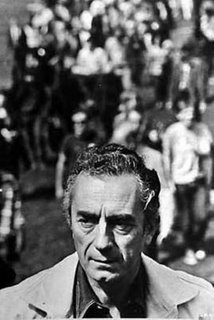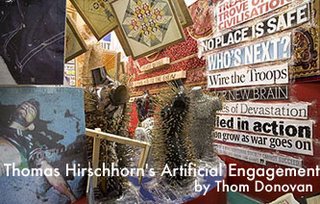
Across Antonioni’s filmmaking, there is a recurrent moment of perception that may allow us to reflect on an emergent imagination after cinematic images. I believe that Gilles Deleuze touches on the potential of these perceptive moments when he considers Antonioni’s filmmaking in terms of what he calls “any-space-whatever” and Op and Son images in his *Cinema 2*:
"As for the distinction between subjective and objective, it also tends to lose its importance, to the extent that the optical situation or visual description replaces the motor action. We run in fact into a principle of indeterminability, of indiscernibility: we no longer know what is imaginary or real, physical or mental, in the situation, not because they are confused, but because we do not have to know and there is no longer a place to ask. It is as if the real and the imaginary were running after each other, as if each were being reflected around the other, around a point of indiscernibility."
The scenes of “any-space-whatever” that most interest me in Antonioni’s films, and which I would like to appropriate for this project, are ones construed too easily as hysterical. Beyond a clinical or “common sense” diagnosis of hysteria, the bodies of many of Antonioni’s most significant characters may be telling of a condition of psychic-bodily dissociation related to our present post-cinematic condition. What is sense and where is it located in space when the image one has of bodies related in space is elsewhere: withdrawn, discoordinated, psychastheniac (Roger Caillois)?
Continually this is the question I ask myself watching Antonioni’s films until his post-’68 work, Zabriskie Point (1970). Curious as a film after American counter-culture and social movements in the late-60’s (and not so different than any numbers of films in this regard: Hal Ashby’s The Landlord, Peter Watkins’ Punishment Park, etc.), Zabriskie is of particular interest to me as it presents a clairvoyant and senseless imagination in the face of social despair and political-judicial distopia -- the “states of exception” of the late-60’s/early-70’s American polis and a “globalizing” polis now.
Like any number of Antonioni characters, the female protagonist of Zabriskie puts the viewer into an ambivalent situation of perception, a point of indiscernibility (Delueze), in the final scene of the film: is she a terrorist in actuality, or does she only imagine the detonation of a bomb at the hotel? How does this scene form a mirror for the perceptive lapse earlier in the film that forces the viewer to adjudicate whether the male protagonist has in fact shot a police officer or if he is merely a hapless innocent? Moving from a meditation on such images shall we consider particular tactics for revolutionary violence not in terms of sensory-motor coordination achieved in purposive movement, but in terms of an eidetic imagination imminently destructive in virtuality *and* reality inasmuch as the real is increasingly determined by the virtual? If this project risks creating a critical fiction it does so only to mobilize factuality towards a new situation of demonstration and thought we currently bear witness to in the wake of “Terror” and other geopolitical quilting points.







